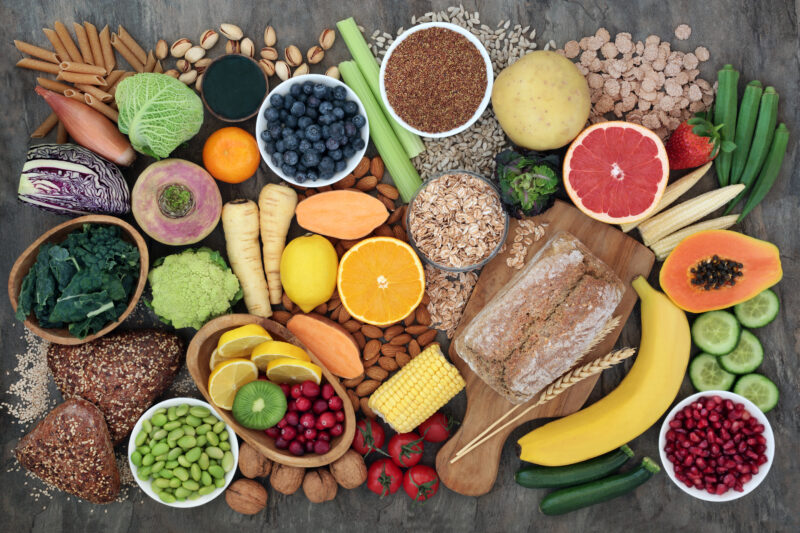
High fibre super food with whole grain bread loaf and rolls, fruit, vegetables, whole wheat pasta, cereals, seeds and nuts. Foods omega 3, anthocyanins, antioxidants and vitamins. Top view.

Mini shopping cart with globe and plants symbolizes sustainable consumer choices.
The Anthropocene poses many challenges for humanity, one of which is the transformation of diets. Because our diet has significant impacts on the environment, animals, fellow humans, and oneself, it raises the ethical question of responsibility: How should we subsist in a responsible manner?
As responsibility is used in an inflated way, it is necessary to first develop a well-founded term of responsibility. Then I want to draft a concept of individual diet responsibility that considers the consequences of diets for oneself, fellow human beings, and the environment (including animals) from a theological-ethical perspective.
Afterwards, the transforming step follows: If it’s cleared how we should act and why, how can it be achieved then, that individuals actually act as they should (attitude-behaviour-gap). Because of this, I want to examine how far a diet-related ethical education can contribute to transforming individuals’ consciousness and actions in their diet-related decisions and how it must be set to be effective.

